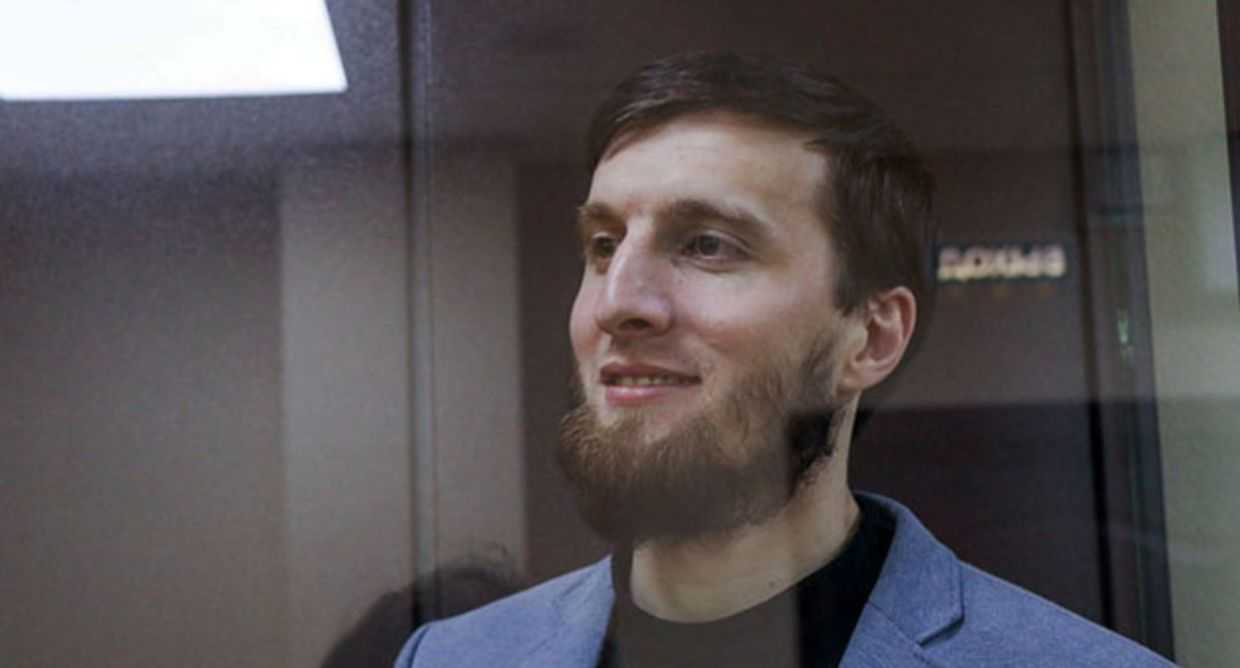Pickets held in Moscow and Saint Petersburg in support of imprisoned Ingush activists

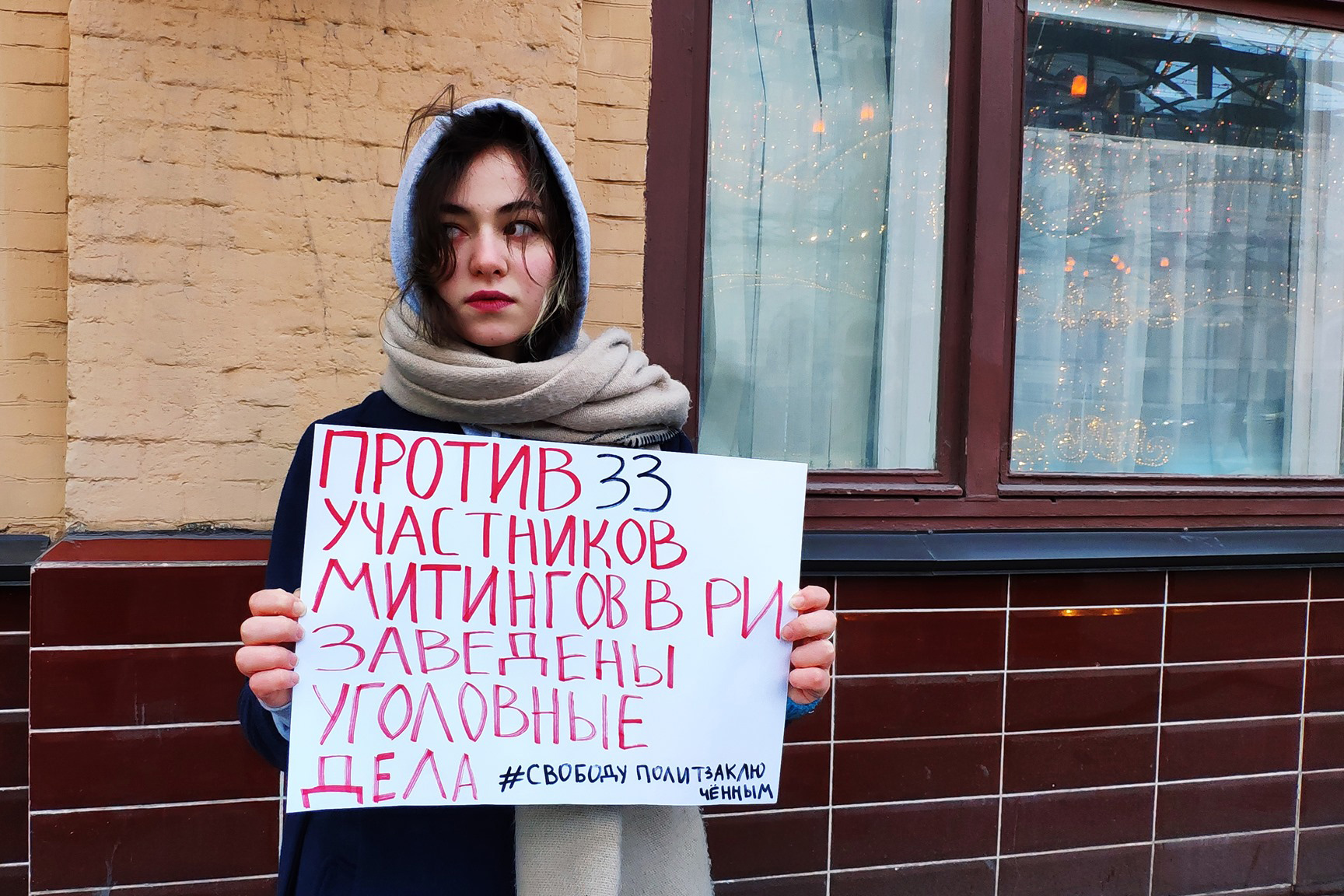
Single-person pickets were held in Moscow and Saint Petersburg on Friday in support of Ingush activists arrested after protests against the Chechen-Ingush land deal.
The pickets were held outside the Russian Presidential Administration in Moscow and outside Metro stations in Saint Petersburg.
Thirty-three people were arrested in the wake of protests in March in the Ingush capital Magas.
The action in Moscow was organised by Bessrochnyi Piket (termless picket), an informal group formed to draw attention to political prisoners, and by journalist Yelizaveta Aleksandrova-Zorina.
Aleksandrova-Zorina told OC Media that the picket was planned to last three hours but ended up lasting 40 minutes longer than announced.
‘There was a constant stream of activists from Bessrochnyi Piket, there were Ingush people, there were some new people who read about the picket and wanted to support it’, said Aleksandrova-Zorina, adding that there was also a heavy police presence.
‘At other pickets, there was no such [number of police]. But the Ingush topic somehow frightened our police’, she added.
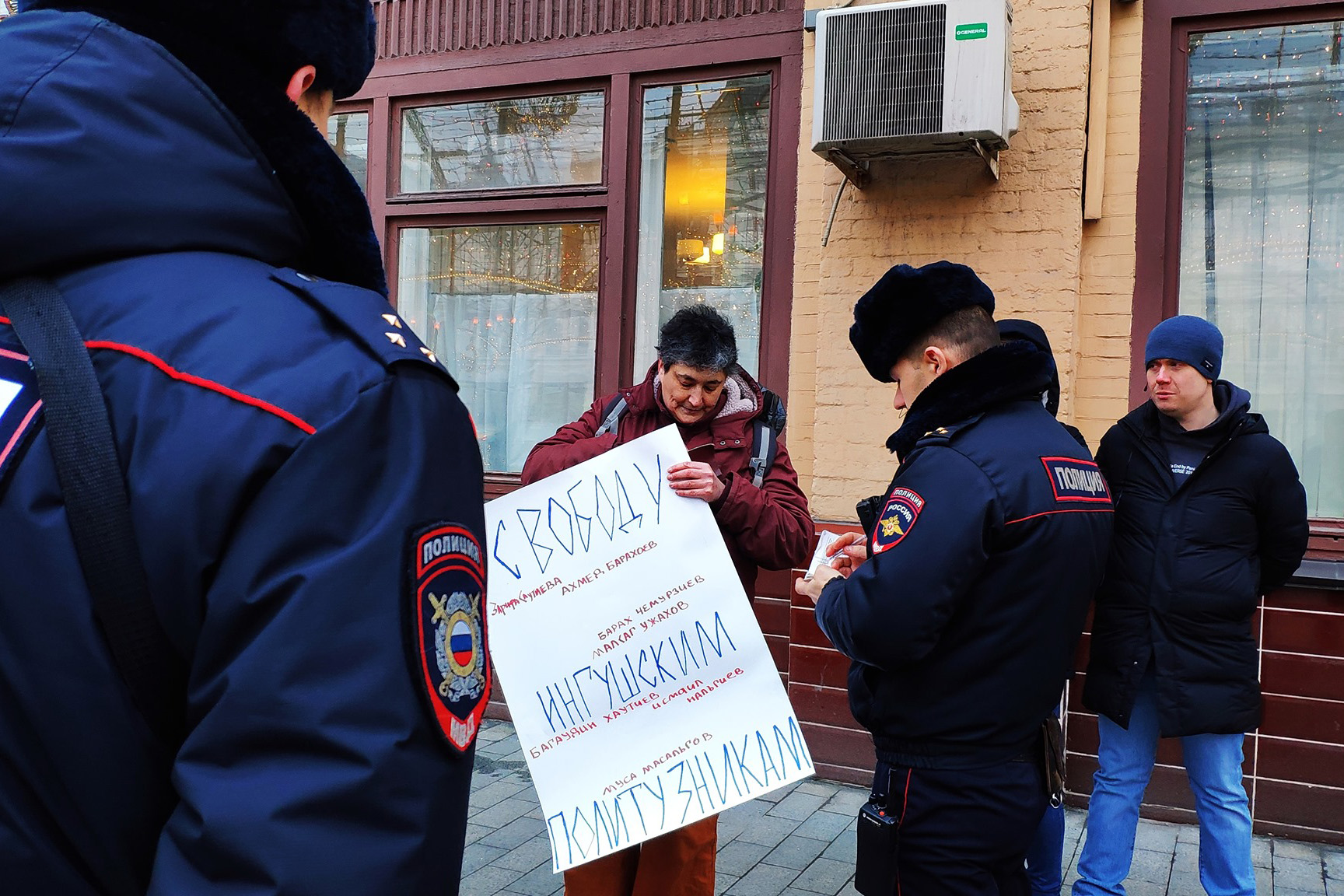
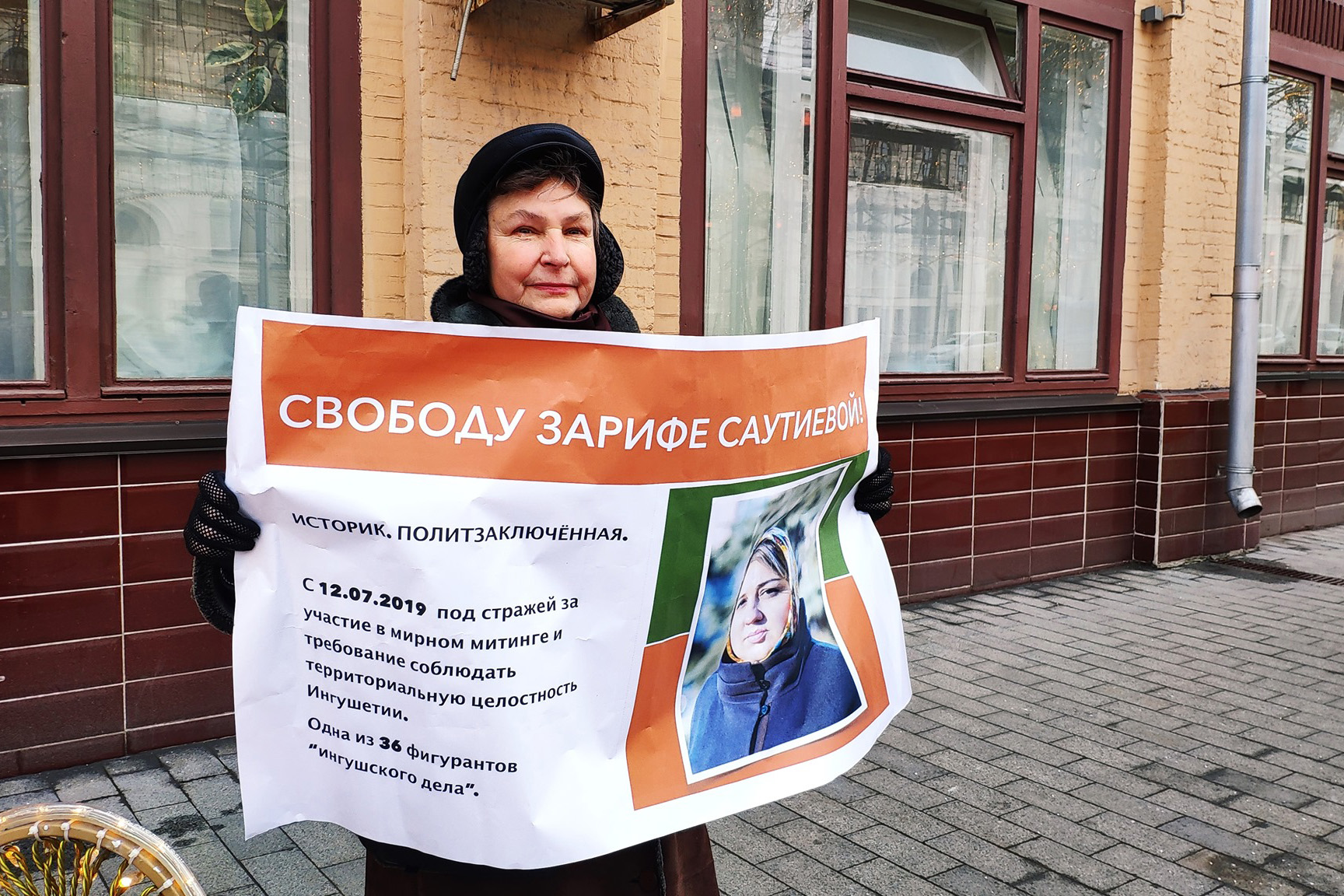
[Read on OC Media: Eight protest leaders in Ingushetia accused of creating extremist group]
According to Aleksandrova-Zorina, passers-by rarely approached the protesters, but she heard people discussing the topic as they passed.
‘And this, in fact, was the goal — so that people would at least find out that something was happening in Ingushetia, and at least use the Internet to search for information’.
Mustafa Dzagiyev, an IT specialist and blogger and a native of Ingushetia, also participated in the picket in Moscow. He told OC Media that he attended because he considers this to be one of the most effective forms of influence on the political agenda.
‘Pickets are an element of soft power and a window of opportunity, allowing both the authorities and the public to convey their pain and actualise our problems again and again’, he said.
‘I am convinced that everything matters: pickets, letters to prisoners, and the work of lawyers, and complicity in the lives of relatives suffering from repression, and a simple, sincere word of truth’.
Single-person pickets, where one person holds a protest placard at a time with protesters often rotating, are a common form of protest in Russia, where larger demonstrations require the permission of the authorities.
‘Metropickets’
In Saint Petersburg, pickets in support of Ingush prisoners were held as part of a broader campaign of ‘Metropikets’ — single-person pickets at metro stations in the city.
Marina Ken, an activist from Saint Petersburg who has repeatedly participated in the campaign in support of the Ingush prisoners, told OC Media that as part of the Metropicket, participants hold pickets at metro stations or other busy places, talking with passers-by.
‘This format was proposed by people in Moscow, and then Saint Petersburg, Rostov and some other cities picked it up. Metropickets take place once a week on Fridays’, she said.
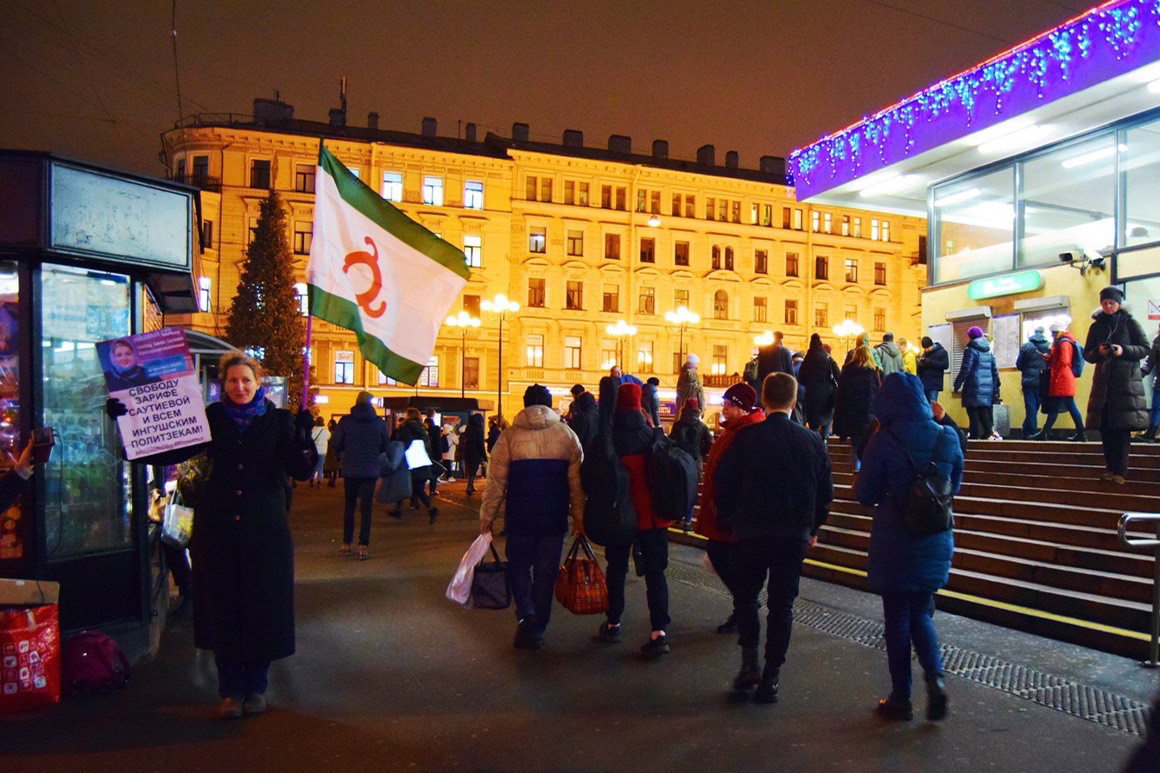
Ken said that while it was cold, many passers-by stopped to ask a question or to argue.
‘At every picket, I am approached by people who simply do not know anything about the “Ingush issue” who ask me to talk about it. There are those who don’t make contact [with me], but stop and read the poster, take a picture, and, probably, then they still go to the Internet to fill the information vacuum on their own’.
An ‘unauthorised rally’
Human rights activists have labelled the criminal cases brought against participants in the March protests in Ingushetia the ‘Ingush case’.
The rally on 26–27 March, the last mass protest in Ingushetia, ended in a skirmish with officers of the Russian National Guard.
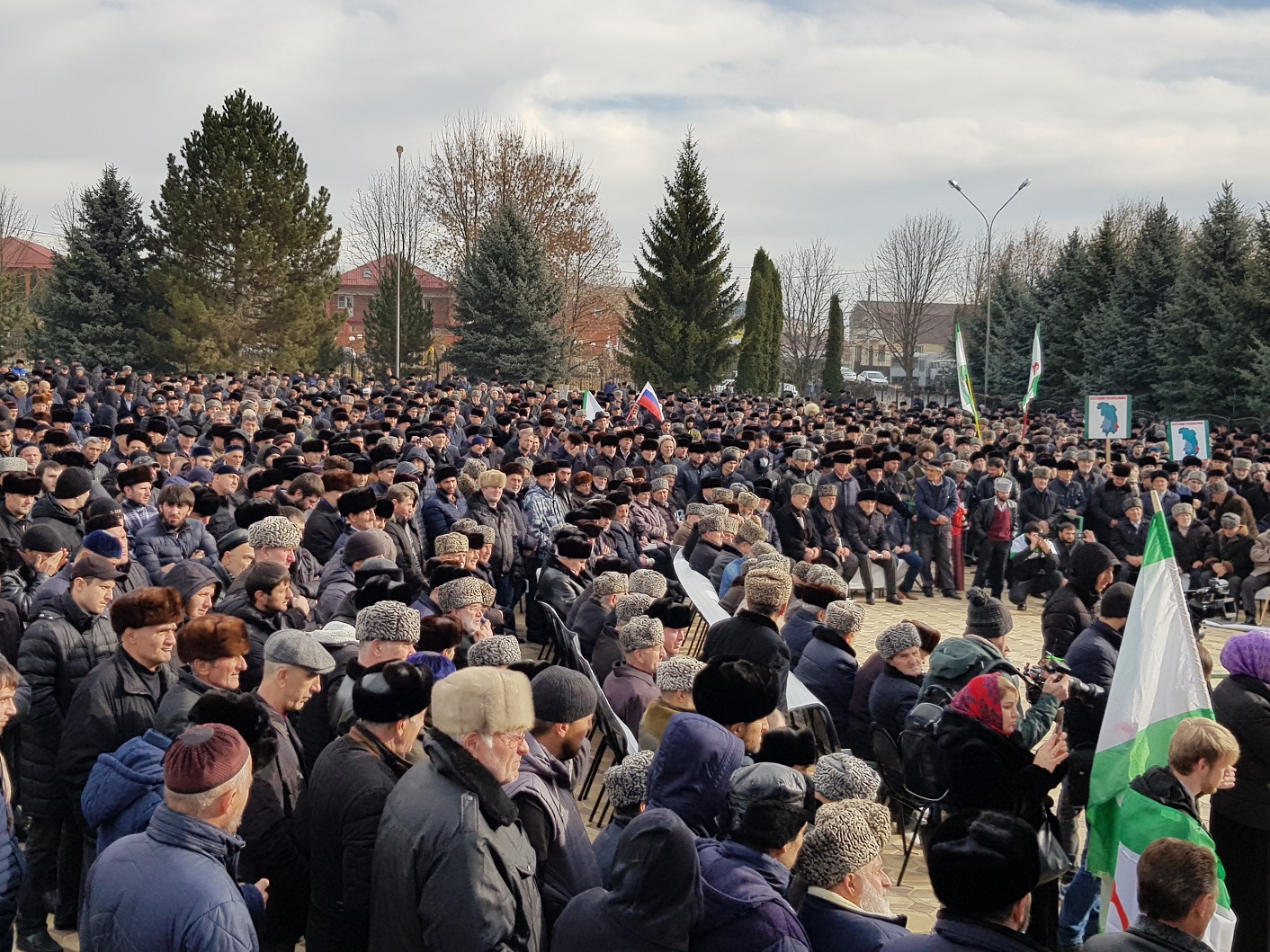
The protestors’ main demand was the resignation of then–head of Ingushetia, Yunus-Bek Yevkurov and the cancellation of the border agreement with Chechnya signed on 26 September 2018.
Under the widely unpopular deal signed by Yevkurov and his Chechen counterpart Ramzan Kadyrov, Ingushetia handed around 340 square kilometres (9% of its territory) to Chechnya.
On 3 April, police searched the homes of the unauthorised 27 March rally participants, 33 people were also arrested and accused of using violence against government officials. The protest leaders who were arrested were later accused of organising the violence.
By the end of December, three people had been convicted and sentenced from 4 to 18 months in a penal colony. The Memorial Human Rights Centre has called the six arrested protest leaders ‘political prisoners’.



